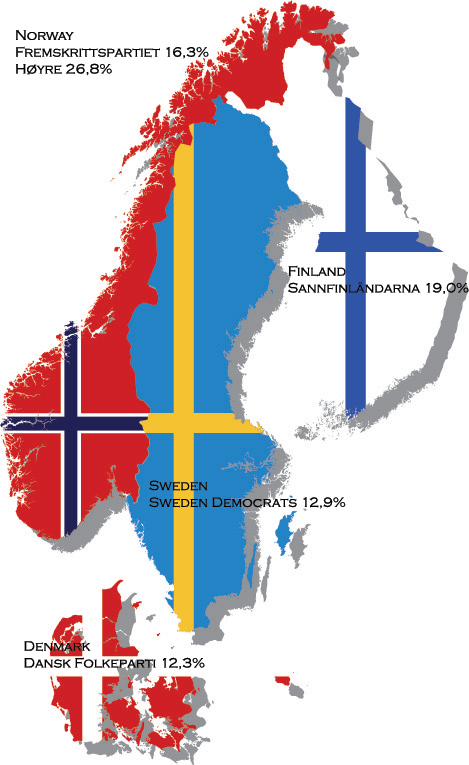
Worlds collide when the masters of spontaneity are aiming to do business with the center of Nordic Noir. At the very last minute the Brazilian Defense Ministry and the Swedish company Saab agreed to postpone the signing of the contract that will define the financial details for Brazil’s buying Swedish Gripen fighters.
The deadline for signing the contract was Monday July 6th 2015, but it is now to be signed in late October instead. The adjourning required President Dilma Rousseff to call her Swedish colleague, Prime Minister Stefan Löfven, and beg for time. However, the compromise comes with a catch. Until late October, the contract and its terms are to be approved by the Brazilian National Congress.
The Brazilian Air Force Commander, Nivaldo Rossato, and Saab executives met with the Brazilian Defense Minister, Jaques Wagner, to come to an agreement. Wagner claimed that there is not possibility of Brazil backing out of purchasing the Gripen fighters. He promised that an effort will be made to determine the financial details.
Brazil bargaining
The Brazilian Air Force signed a contract in October last year to buy the Swedish fighters to a cost of US$ 5,4 billion. However, Brazil is determined to renegotiate the interest that was agreed upon in the contract, since the economy in the country is suffering a recession.
The Brazilian Minister of Finance, Joaquim Levy, claims that a renegotiation of the interests will save the country over US$ 300 million in 25 years. Furthermore, the Minister wants to use the renegotiated Saab contract as a model to revise other international contracts that have been signed by other Ministries. Since the interests have fallen in Europe, the Brazilians see an opportunity to improve their stakes. In an informal ambient this kind of behavior is called “jeitinho”, a Brazilian way of rearranging a done deal so that the benefits increase.
On the opposite side of the globe, the Swedes are great fans of rules and efficiency, tending to arrive at least five minutes early to meetings. Behind the scenes there are claims that the Swedes have argued that a renegotiation of the interest is a violation towards the OECD’s Export Credit Arrangement. A breach of the arrangement could lead to reprisals from the World Trade Organization (WTO). Accordingly, the Swedes insist that the interest was defined the day the contract was signed in 2014.
In Brazil’s 2015 budget, R$ 1 billion (approximately US$ 320 million) have been reserved for the buying of the Swedish jets. However, since a long-term plan to pay off the planes is being structured, the Brazilians do not expect to apply all of the money that has been set aside.
Economy collapsing
With an increasingly tense domestic situation ignited by the Petrobras corruption scandal which has generated demands to impeach President Rousseff and inflation hitting 8,89% it is alarming that Brazil chooses to suspend the Saab contract. Not to mention the financial blow after the most expensive FIFA World Cup ever and the Olympics coming up next year, which are also bleeding money and are as late as the preparations for the World Cup.
To samba your way around your own country, wasting your proper means is one thing. But when you ask a Gringo for a dance, you cannot expect them to fall for you charms. Certainly not in a world concerned enough as it is with Grexit and the future of Europe.


